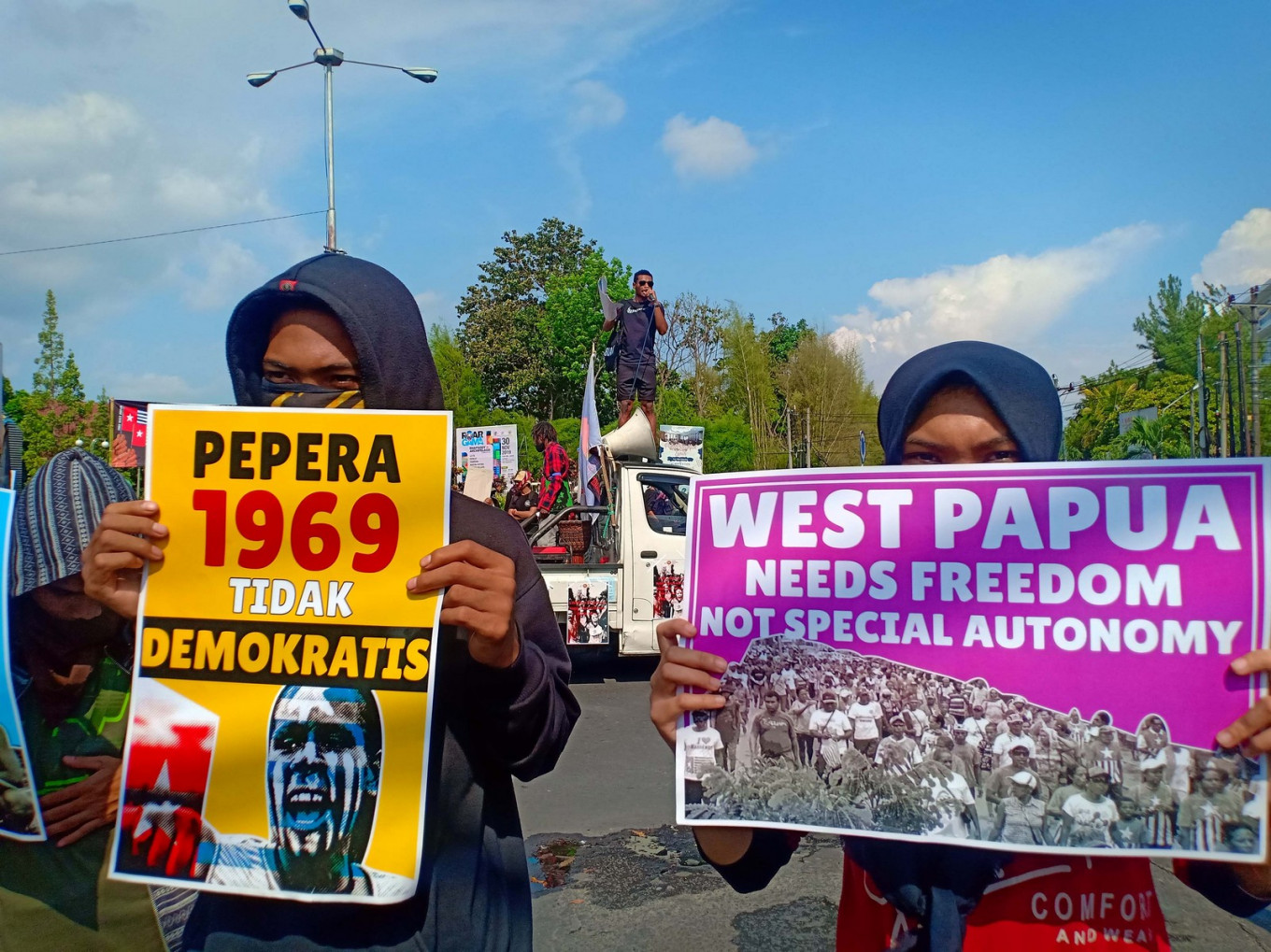Popular Reads
Top Results
Can't find what you're looking for?
View all search resultsPopular Reads
Top Results
Can't find what you're looking for?
View all search resultsHouse passes revised Papuan Special Autonomy Law despite protests
The revision contains several fundamental changes in political and economic aspects, which, according to the House and the government, was proof of central government support for Papua.
Change text size
Gift Premium Articles
to Anyone
T
he House of Representatives passed a bill that revised the Papuan Special Autonomy Law in a plenary session on Thursday, granting more power to native Papuans. But activists fear it will only deepen existing tensions.
The revision contains several fundamental changes in political and economic aspects, which, according to the House and the government, was proof of central government support for Papua.
This includes a provision that allows for the formation of new representative institutions at regency and city level called DPRK in Papua and West Papua, replacing the Regional Legislative Councils (DPRD).
A quarter of the total seats will be reserved for appointed native Papuans who are not members of any political parties, 30 percent of whom should be female. This will account for around 250 seats, according to Indonesian Democratic Party of Struggle (PDI-P) lawmaker Komarudin Watubun who heads the special House committee on Papuan autonomy.
It remains unclear who will have the right to appoint them, pending the issuance of a government regulation, which according to the House and the government will be introduced no later than the next three months.
"Here we are expanding the roles of native Papuans in politics through the DPRK, a new nomenclature to replace the DPRD," Komarudin said in the plenary session.
The allocations for native Papuans and women is also applicable for the existing provincial level legislative councils (DPRP).
Under the revision, members of the Papuan People’s Assembly (MRP) in each province cannot come from political parties, only from elected independent native Papuan peoples. Initially, the law did not specifically regulate the political background of MRP members.
Read also: After 19 years of special autonomy, trust between Jakarta and Papua in tatters
It also increases the allocation of the country's annual budget for the much debated special autonomy fund from 2 percent to 2.25 percent. Of this 1 percent must be used for projects to improve public service, infrastructure and native Papuan welfare, while the remaining 1.25 percent must go to education, health and economic development.
According to Home Minister Tito Karnavian, the 1.25 percent will be allocated under a performance-based scheme to improve how local administrations manage the funds, with a minimum of 30 percent going to education and 20 percent going to health care.
In total, the new law revises 18 articles and adds two new provisions. This includes three articles on the special autonomy funding the government has proposed to alter.
“This is intended to accelerate development in Papua so that the government can realize the goal of making everyone prosperous,” Tito said during the plenary session.
However, activists have expressed dissatisfaction with the revision, seeing it as a continuation of enforced rule from Jakarta.
Rallies opposing the passing of the bill have occurred in Papua, including a protest staged in Cendrawasih University in Jayapura on Wednesday, when 23 students were arrested for refusing to disperse and defying COVID-19 social-distancing rules, Kompas.com reported.
Read also: Govt 'missing' opportunity to review Papua’s special autonomy
“The protest in Jayapura is a sign that we as Papuans don’t accept this law,” Manokwari-based Foundation of Justice and Human Integrity Papua executive director Theo Hesegem told The Jakarta Post.
“We observe that the MRP did not do its job in listening to regencies and districts in regard to the formation of this law. The MRP was supposed to voice the public’s opinion on this matter.”
Activists also feel that the assigned seats will breed new problems in Papua, unless traditional institutions are more involved.
“Papua is very heterogeneous. There are around 253 ethnic groups in Papua, with each of them in heated conflict," Peace Papua Network coordinator Adriana Elisabeth said. "Unless there’s a clear way of nominating these seats without causing more friction between the groups, we cannot solve the representation problem in Papua."
Manokwari Legal Aid Research, Assessment and Development Institute (LP3BH) executive director Yan Christian Warinussy predicted the appointed seats in the DPRKs would only "cause more horizontal conflicts between Papuans".










